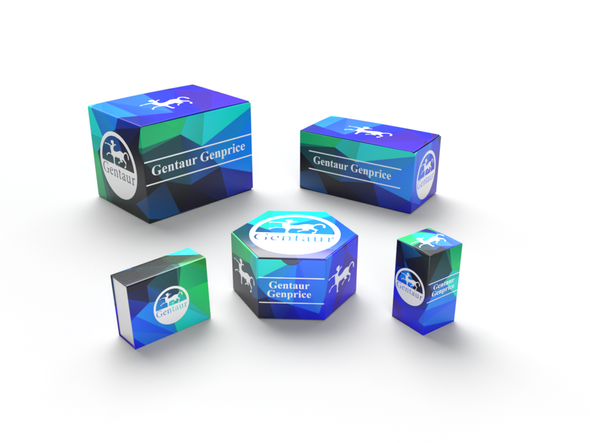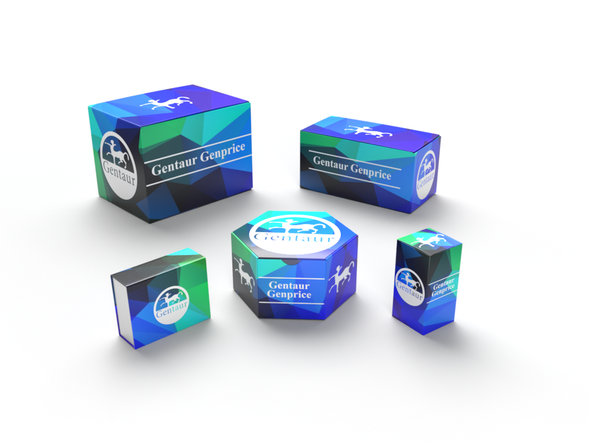Description
Rabbit Anti-Human BRAK Antibody | 102-P223 | Gentaur UK, US & Europe Distribution
Species: Anti-Human
Host / biotech: Rabbit
Comment: N/A
Label: N/A
Clone / Antibody feature: Rabbit IgG
Subcategory: Polyclonal Antibody
Category: Antibody
Synonyms: CXCL14; KEC; KS1; BMAC; BRAK; NJAC; MIP2G; MIP-2g; SCYB14
Isotype: N/A
Application: ELISA, WB
Detection Range: N/A
Species Reactivity/Cross reactivity: Human
Antigen: E.coli derived Recombinant Human BRAK (CXCL14)
Description: BRAK/CXCL14 (breast and kidney-expressed chemokine), also named MIP2 gamma, KEC (kidney-expressed chemokine), and BMAC (B cell and monocyteactivating chemokine), is a member of CXC chemokine superfamily. The deduced 99 amino acid (aa) residue precursor has a 22 aa putative signal peptide that is cleaved to produce the 77 aa mature protein. Mature human and mouse CXCL14 differ by only 2 residues. Human CXCL14 shares approximately 30% aa sequence identity with MIP2α (GROβ) as well as MIP2β (GROγ). The gene for CXCL14 has been mapped human chromosome 5q31. Unlike the MIP2 chemokines, CXCL14 lacks the ELR domain preceding the CXC motif. CXCL14 transcripts are constitutively expressed at high levels in the basal layer of epidermal keratinocytes and dermal fibroblasts of skin tissues as well as lamina propria cells in normal intestinal tissues. CXCL14 has been shown to be a highly selective chemoattractant for monocytes that have been treated with prostaglandin E 2 or forskolin, agents that activate adenylate cyclase. CXCL14 has been proposed to be important for regulating the trafficking of macrophage precursor to regions in skin and mucosal tissues that support their development. Consistent with this hypothesis, macrophages were frequently found to colocalize with CXCL14producing cells in the dermis and lamina propria.
Purity Confirmation: N/A
Endotoxin: N/A
Formulation: lyophilized from PBS
Storage Handling Stability: The lyophilized antibody is stable for at least 2 years from date of receipt at -20°C. The reconstituted antibody is stable for at least two weeks at 2-8°C. Frozen aliquots are stable for at least 6 months when stored at -20°C.
Reconstituation: Centrifuge vial prior to opening. Reconstitute in sterile water to a concentration of 0.1-1.0 mg/ml.
Molecular Weight: N/A
Lenght (aa): N/A
Protein Sequence: N/A
NCBI Gene ID: 9547






